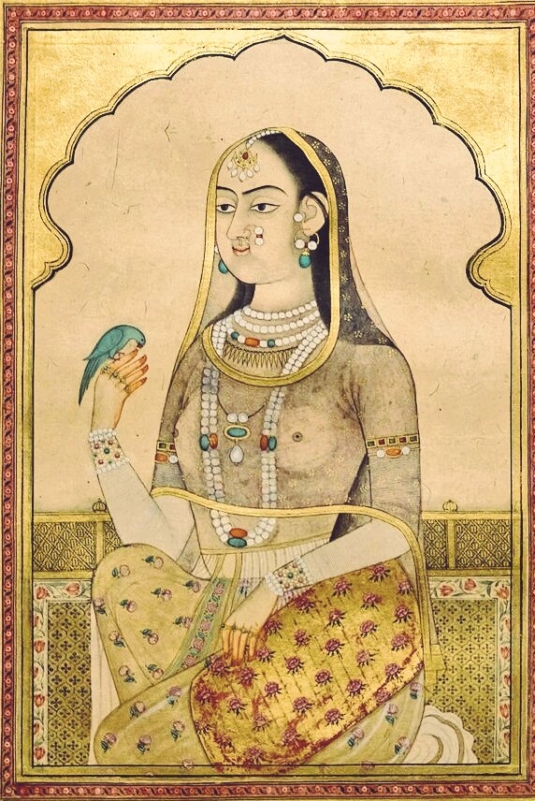A lesser known character from the Mughal Empire is princess Zebunnisa, the eldest daughter of Emperor Aurangzeb. Unlike her puritanical father, Zebunnisa was a Sufi poet and did not share her father’s orthodoxy. Here is a translated version of her beautiful verses:
`Things of Love’
Though I am Laila of Persian romance,
my heart loves like ferocious Majnun.
I want to go to the desert
but modesty is chains on my feet.
A nightingale came to the flower garden
because she was my pupil.
I am an expert in things of love.
Even the moth is my disciple!
By Zebunnisa Makhfi
(translated by Willis Barnstone).
She held a separate court, patronized arts and letters and was a major poet of her times. Her verses were later compiled and published as Diwan-i-Makhfi. Here Makhfi the hidden or invisible one is a metaphor for her invisibility at the main Court and at the cosmic level the invisibility of God.
Two poems I found here , illuminate what is hidden...
The nightingale would forget his song to the rose,
If he saw me walking in the garden.
If the Brahmin saw My face,
He would forget his idol.
Whoever would find Me,
Must look in My words;
For I am hidden in My words,
As the perfume in the petals of the flowers.
II
If the beloved face thou canst not see
Within thy heart still cherish thy desire;
And if her love she will not grant to thee,
In thy love never tire.
Although her face be hidden from thy sight,
Within the sanctuary of thy heart
Still keep her image for thine own delight,
Hidden apart.
And if the Keeper of the Garden close
Before your face the inexorable gate,
O linger yet! The perfume of the rose
Will float to you, and find you as you wait
Not all disconsolate.
Zebunnisa was later imprisoned by Aurangzeb and she died incarcerated in a Delhi fortress. A recently published book ‘Captive Princess: Zebunnisa, Daughter of Emperor Aurangzeb’, attempts to examine the causes of her imprisonment, her worldview and reconstructs her life.
No moth am I that in impetuous fashion
Fly to the flame and perish. Rather say
I am a candle that with inward passion
Slowly and silently consume away.
Translations of her poetry by the Wisdom of the East series can be found here.
Read more about Princess Zebunnisa:
http://razarumi.com/mughal-princess-zebunnissa/



